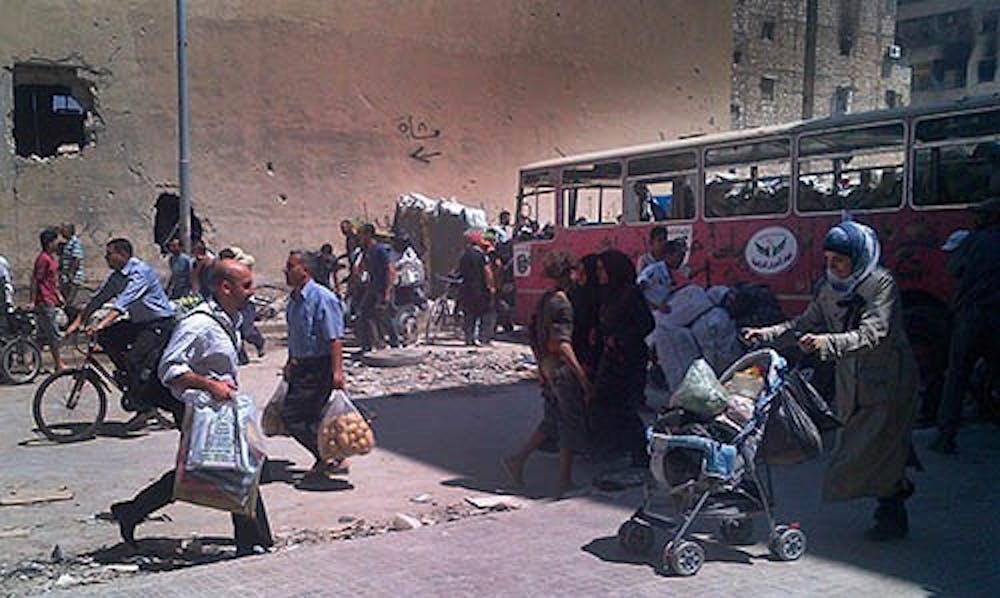Con Sullivan is a graduate student working on a masters in public administration with a concentration in homeland security and emergency management. His views don’t necessarily reflect the views of The Daily News or its Unified Student Media affiliates. You can contact Con at cjsullivan@bsu.edu.
Secretary of State John Kerry announced Monday that the U.S. believes the Syrian government, under Assad’s regime, used chemical weapons against citizens in the suburbs of Damascus.
This is clearly crossing the line President Barack Obama set last year when discussing the U.S.’s intervention in the conflict.
By that metric, chemical weapons being used by the regime against civilians means the U.S. shall intervene; America will uphold its decisions and intervene in Syria.
But let us take a step back and look at the political atmosphere of the conflict. Obama said the use of chemical weapons in the Syrian conflict would result in the U.S. taking action against Assad’s regime. The U.N. inspectors, when inspecting the cite of the chemical weapon attack, were shot at by snipers. The allegiances of the shooters are argued, military or rebel.
Let me float the idea that the rebels used chemical weapons against civilians to draw support from the international community. In March, chemical weapons were allegedly used against civilians in a smaller quantity in the Khan al-Assal district of Aleppo in northern Syria. Assad’s regime blames this attack on the rebels.
The public opinion of the U.S. is markedly against military intervention in Syria, with only 9 percent supporting the decision. For a comparison, Congress is more popular, but obtaining only 15 percent approval.
Obama has somewhat backed himself into a corner by drawing a line that assumedly was crossed by Assad’s regime by being hard lined against chemical weapon use, but not having national support to backup his stance.
Assad’s regime is winning the conflict in Syria. They have support from Iran, China and Russia. China and Russia have veto power in the U.N. Security Council and have repeatedly vetoed resolutions supporting foreign involvement in Syria. The regime has nothing to gain directly by using chemical weapons.
The rebels are losing. They have little international support because of the Muslim Brotherhood support they are receiving. The rebels have nothing to lose by trying to trick the world into believing Assad used chemical weapons.
Another issue with the Syrian conflict is could the rebels have different groups inside themselves that have different goals for the conflict? Could the Muslim Brotherhood or another organization be a mastermind behind the rebels in Syria?
But what does this mean for the U.S.? Second worse to sending in U.S. troops is to arm the rebels. This didn’t work when the U.S. armed the Mujahideen to fight the Soviets in Afghanistan, and it won’t work arming the Muslim Brotherhood in Syria to defeat Assad.
The U.S. should be involved in Syria by establishing a “no-fly zone,” much like Kosovo in 1999 and striking Syrian military targets, such as airports and military support facilities.
However, U.S. military troops on the ground in Syria are completely out of the question.
France and Germany are being very vocal in the international community. The French Foreign Minister Laurent Fabius told Europe 1 radio that “the only option that I can’t imagine would be to do nothing,” which could provide them with an opportunity to lead an international response. The Obama administration has learned from the mistakes of President George W. Bush in regards to Iraq and won’t involve the nation in another drawn out, unproductive, eight-year war.


